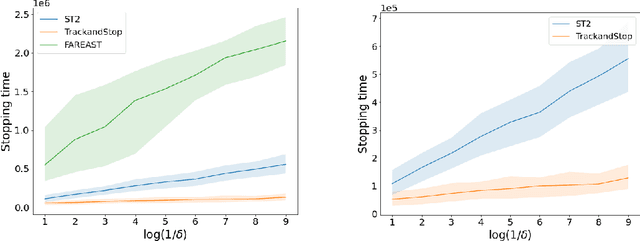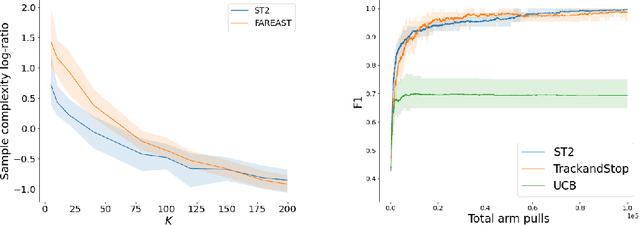On the complexity of All $\varepsilon$-Best Arms Identification
Paper and Code
Feb 13, 2022



We consider the problem introduced by \cite{Mason2020} of identifying all the $\varepsilon$-optimal arms in a finite stochastic multi-armed bandit with Gaussian rewards. In the fixed confidence setting, we give a lower bound on the number of samples required by any algorithm that returns the set of $\varepsilon$-good arms with a failure probability less than some risk level $\delta$. This bound writes as $T_{\varepsilon}^*(\mu)\log(1/\delta)$, where $T_{\varepsilon}^*(\mu)$ is a characteristic time that depends on the vector of mean rewards $\mu$ and the accuracy parameter $\varepsilon$. We also provide an efficient numerical method to solve the convex max-min program that defines the characteristic time. Our method is based on a complete characterization of the alternative bandit instances that the optimal sampling strategy needs to rule out, thus making our bound tighter than the one provided by \cite{Mason2020}. Using this method, we propose a Track-and-Stop algorithm that identifies the set of $\varepsilon$-good arms w.h.p and enjoys asymptotic optimality (when $\delta$ goes to zero) in terms of the expected sample complexity. Finally, using numerical simulations, we demonstrate our algorithm's advantage over state-of-the-art methods, even for moderate values of the risk parameter.
 Add to Chrome
Add to Chrome Add to Firefox
Add to Firefox Add to Edge
Add to Edge